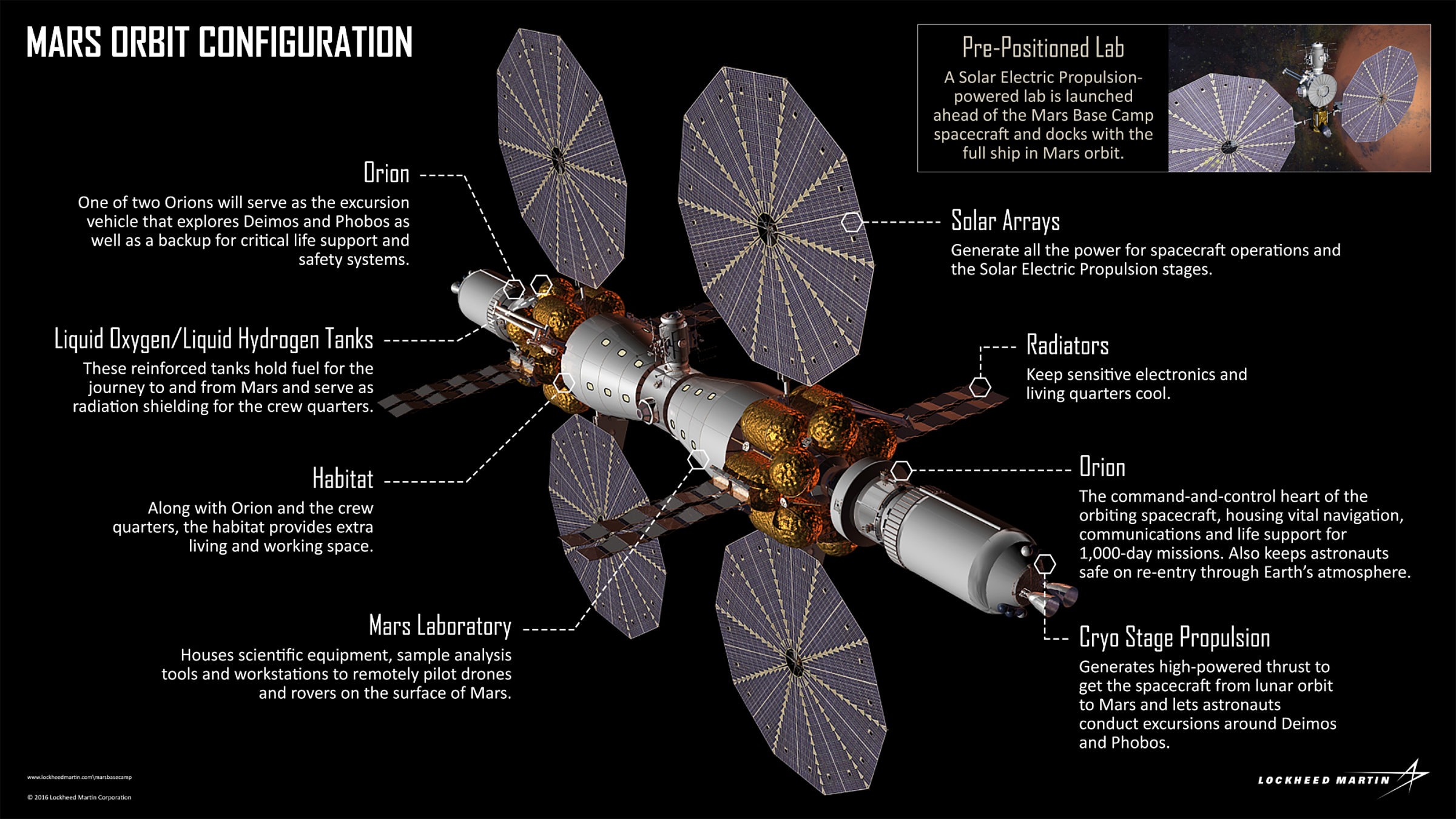Casey Dreier • May 19, 2016
Lockheed Proposes to have Humans Orbiting Mars by 2028
About a year ago, The Planetary Society hosted a workshop exploring the political, financial, scientific, and public outreach opportunities provided by orbit-first approach to sending humans to Mars. Our resulting report featured a JPL-led concept that would get humans to Mars orbit by 2033, maximize the use of existing hardware, and provide a pathway for coalition-building between industry, government, and the scientific community. An independent cost estimate by the Aerospace Corporation indicated the the plan could fit within the existing human spaceflight budget as long as it grew with inflation.
Roughly a year later, Lockheed Martin revealed their take of the orbit-first concept with Mars Base Camp, an orbiting laboratory around Mars that could host six humans in Mars orbit as soon as 2028. It utilizes the SLS for launches, solar electric propulsion to pre-position cargo at Mars, and two Orion spacecraft for human sorties to the moons of Mars, as well as providing a means for astronauts to control rovers on the surface.

We at the Society are quite pleased to see this Lockheed concept embracing many of the same principles we recommended in our report: using existing programs, embracing the science potential of Mars orbit, utilizing deep space habitats in cis-lunar space as a proving ground, and the human exploration of Phobos and Deimos, to name a few.
NASA has not endorsed this concept, and many more details need to be made clear—including the results of an independent cost estimate—in order to make any sort of analysis regarding the overall feasibility of this concept. But it’s a good example of how the orbit-first approach is triggering significant thought and represents another step toward building a strong coalition needed to sustain a long-duration program of sending humans to Mars. I’m glad to see Lockheed putting ideas out there, and hopeful that NASA will be further encouraged to clarify their plans.
Support our core enterprises
Your support powers our mission to explore worlds, find life, and defend Earth. You make all the difference when you make a gift. Give today!
Donate

 Explore Worlds
Explore Worlds Find Life
Find Life Defend Earth
Defend Earth

